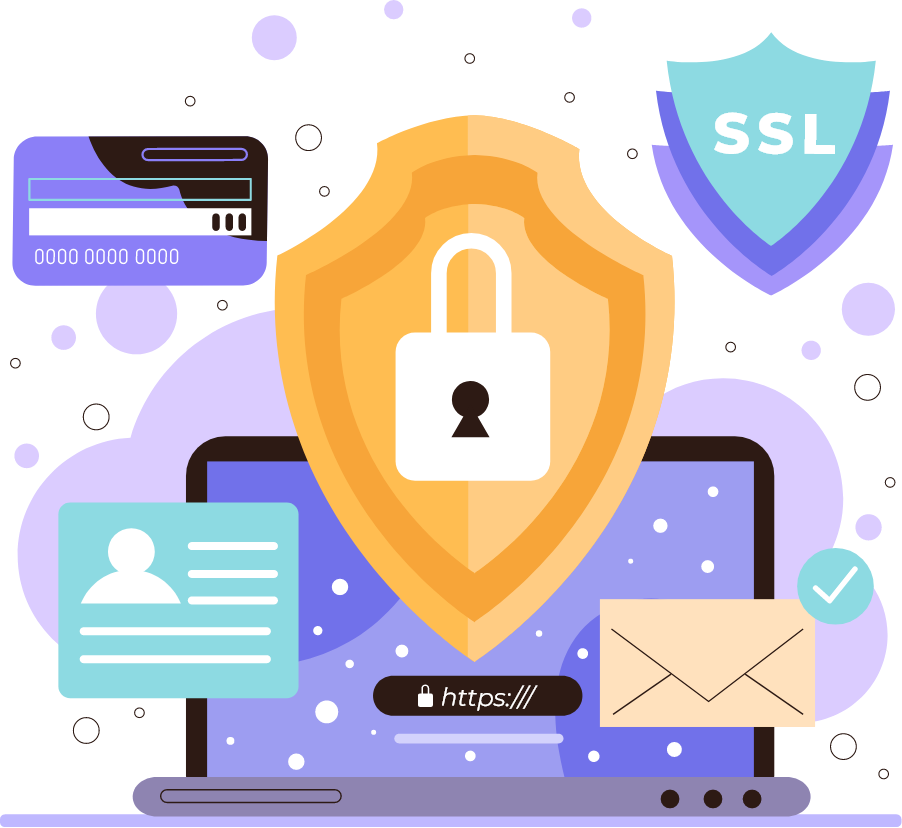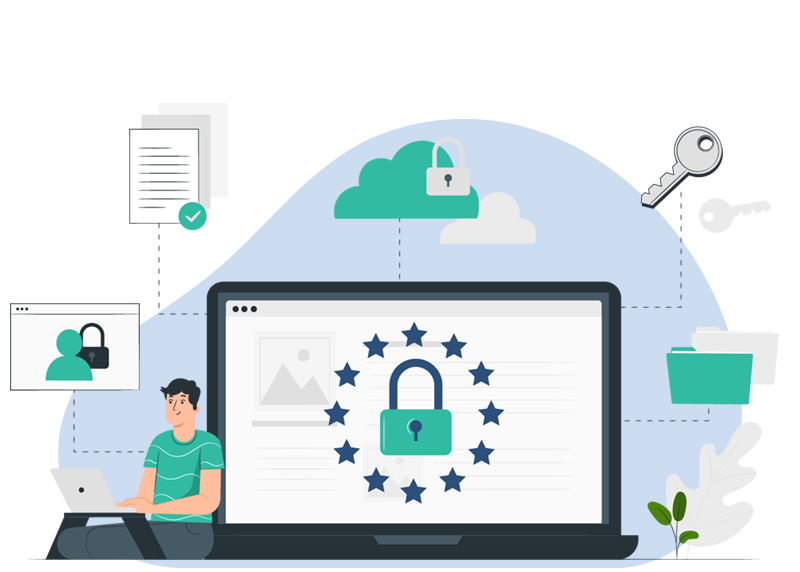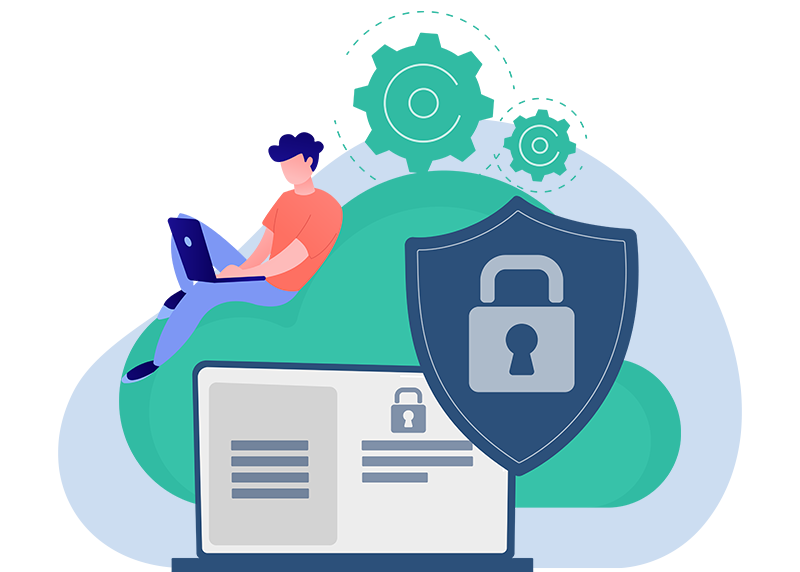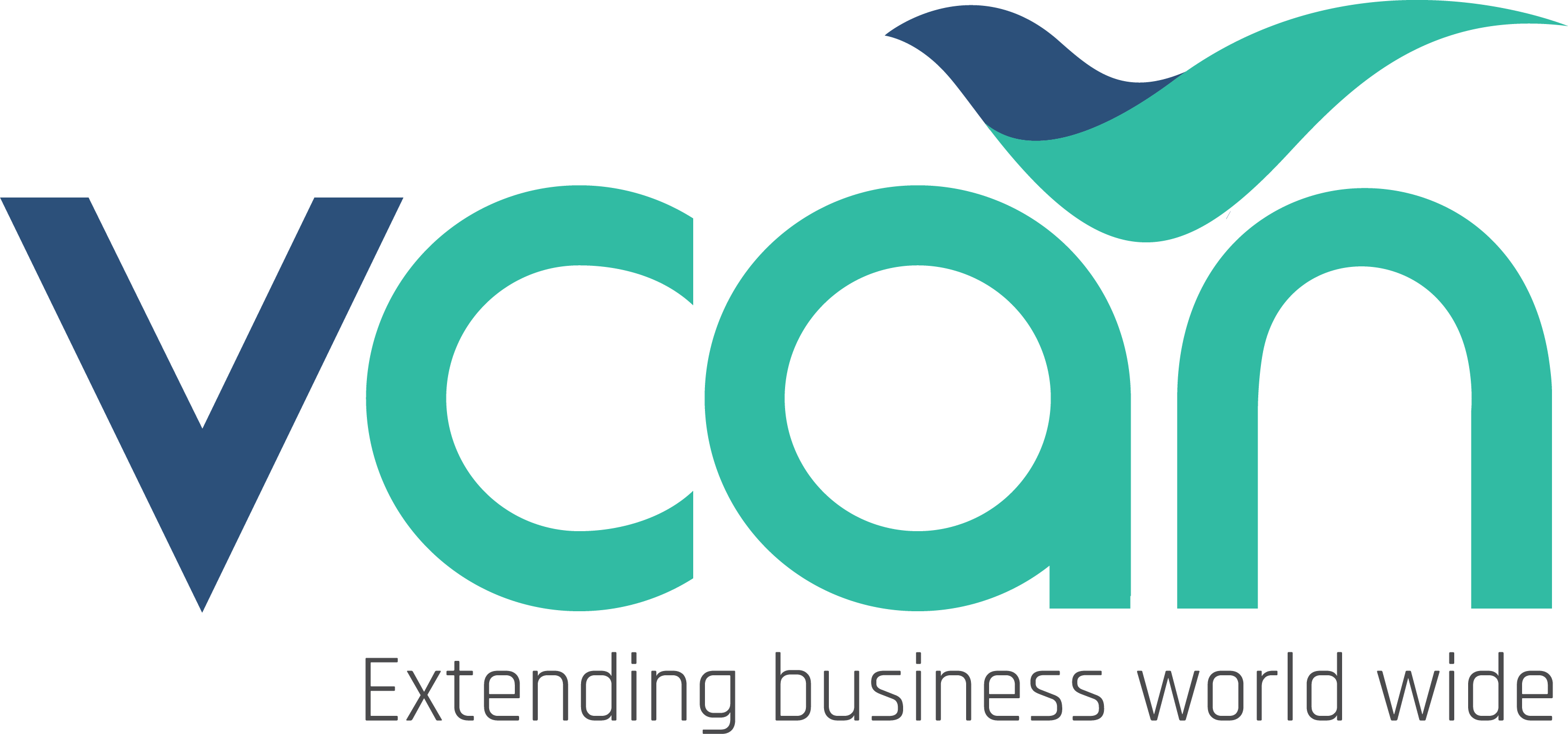An Enterprise SSL Solution offers unparalleled security and trust for your business.
Secure web servers & load balancers
Automate Certificate Lifecycle Management and Secure Every Server Across Your Environment with our Enterprise SSL Solution.

SSL and TLS certificates are essential tools for ensuring secure and private communication over the internet.
Why Choose VCANTECH for having SSL & TLS Certificate?
SSL (Secure Socket Layer) and TLS (Transport Layer Security) certificates provide essential security and encryption benefits for internet communications. Here are some key benefits of using SSL and TLS certificates

SSL
SSL/TLS certificates are used to enable encryption and verify the authenticity of the server. These certificates are issued by trusted Certificate Authorities (CAs) and contain information about the website's identity and the public key used for encryption. When a client connects to a secure website, the server presents its SSL/TLS certificate, and the client verifies its authenticity to establish a secure connection.
S/MIME
S/MIME provides a higher level of security for email communication, especially in professional and business settings where sensitive information is frequently exchanged. By encrypting emails, S/MIME ensures that only the intended recipients can read the content, protecting against unauthorized access. Digital signatures help verify the authenticity of the sender and ensure that the message has not been altered in transit.


Email Gateway
An email gateway, also known as a mail gateway or email security gateway, is a network appliance or software solution that acts as an intermediary between an organization's internal email infrastructure and the external email networks, such as the internet. The primary purpose of an email gateway is to enhance email security, manage email traffic, and apply various email policies to incoming and outgoing messages.
WAF
Web Application Firewalls are an important component of a comprehensive web application security strategy, providing an additional layer of protection to help safeguard web applications and sensitive data from emerging threats and vulnerabilities. They are available as hardware appliances, software solutions, or cloud-based services and can be tailored to the specific security requirements of individual web applications.


EndPoint
Endpoints are a crucial consideration in cybersecurity. Securing endpoints is essential to protect the overall network from various threats, including malware, unauthorized access, data breaches, and other cyber-attacks. Endpoints are often the entry points for attackers to gain access to a network, making them vulnerable targets.
Still Manually Managing SSL/TLS Certificates?
Contact Us
Do you have a question that we can help to answer? Our team is ready to assist you.
Schedule a Demo
FAQS
What is an SSL certificate?
An SSL certificate is a digital certificate that authenticates the identity of a website and encrypts the data transmitted between a user's web browser and the server. It ensures that sensitive information, such as login credentials, credit card details, and personal data, remains secure during transmission.
What is TLS, and how does it differ from SSL?
TLS (Transport Layer Security) is the successor of SSL (Secure Socket Layer). While SSL was widely used in the past, it has been deprecated due to security vulnerabilities, and TLS is now the standard protocol used for secure communication over the internet. The term "SSL" is often used colloquially to refer to both SSL and TLS certificates.
How does SSL/TLS encryption work?
SSL/TLS encryption uses a combination of asymmetric and symmetric encryption. When a user connects to a website with an SSL/TLS certificate (HTTPS), the browser and server establish a secure connection through a process called the TLS Handshake. During this handshake, the server presents its SSL/TLS certificate to the browser, which contains the server's public key. The browser then generates a session key (symmetric key) to encrypt the data exchanged between the client and server during the session.
Why is an SSL/TLS certificate essential for websites?
An SSL/TLS certificate is crucial for websites because it ensures the security, privacy, and integrity of data exchanged between the website and its visitors. It prevents unauthorized interception of sensitive information and protects against man-in-the-middle attacks, enhancing the trustworthiness of the website.
How do I know if a website has an SSL/TLS certificate?
When a website has an SSL/TLS certificate, it is indicated by "HTTPS" in the website's URL and a padlock icon in the browser's address bar. Modern browsers also display warnings when users try to visit non-secure (HTTP) websites that collect sensitive data.
How do I obtain an SSL/TLS certificate for my website?
To obtain an SSL/TLS certificate, you need to purchase one from a reputable Certificate Authority (CA) or use a CA that offers free certificates. You will need to generate a Certificate Signing Request (CSR) on your web server, submit it to the CA during the certificate application process, verify your domain ownership, and then receive and install the issued certificate on your server.
What types of SSL/TLS certificates are available?
There are several types of SSL/TLS certificates, including Domain Validated (DV), Organization Validated (OV), Extended Validation (EV), Wildcard, and Multi-Domain (SAN) certificates. Each type varies in the level of validation and the number of domains or subdomains it can secure.
How long is the validity period of an SSL/TLS certificate?
The validity period of an SSL/TLS certificate typically ranges from one to three years. Certificate authorities issue certificates with different validity periods, and website owners must renew their certificates before they expire to maintain secure communication.
Are SSL/TLS certificates necessary for all websites, even small ones?
Yes, SSL/TLS certificates are necessary for all websites, regardless of their size. Even small websites that don't handle sensitive data can benefit from SSL/TLS encryption. It improves security, boosts SEO rankings, and helps build trust with visitors.
Can SSL/TLS certificates be used for email encryption?
No, SSL/TLS certificates are specifically designed for securing web communication. To secure email communication, you would need S/MIME (Secure/Multipurpose Internet Mail Extensions) certificates, which are specifically designed for email encryption and authentication.


